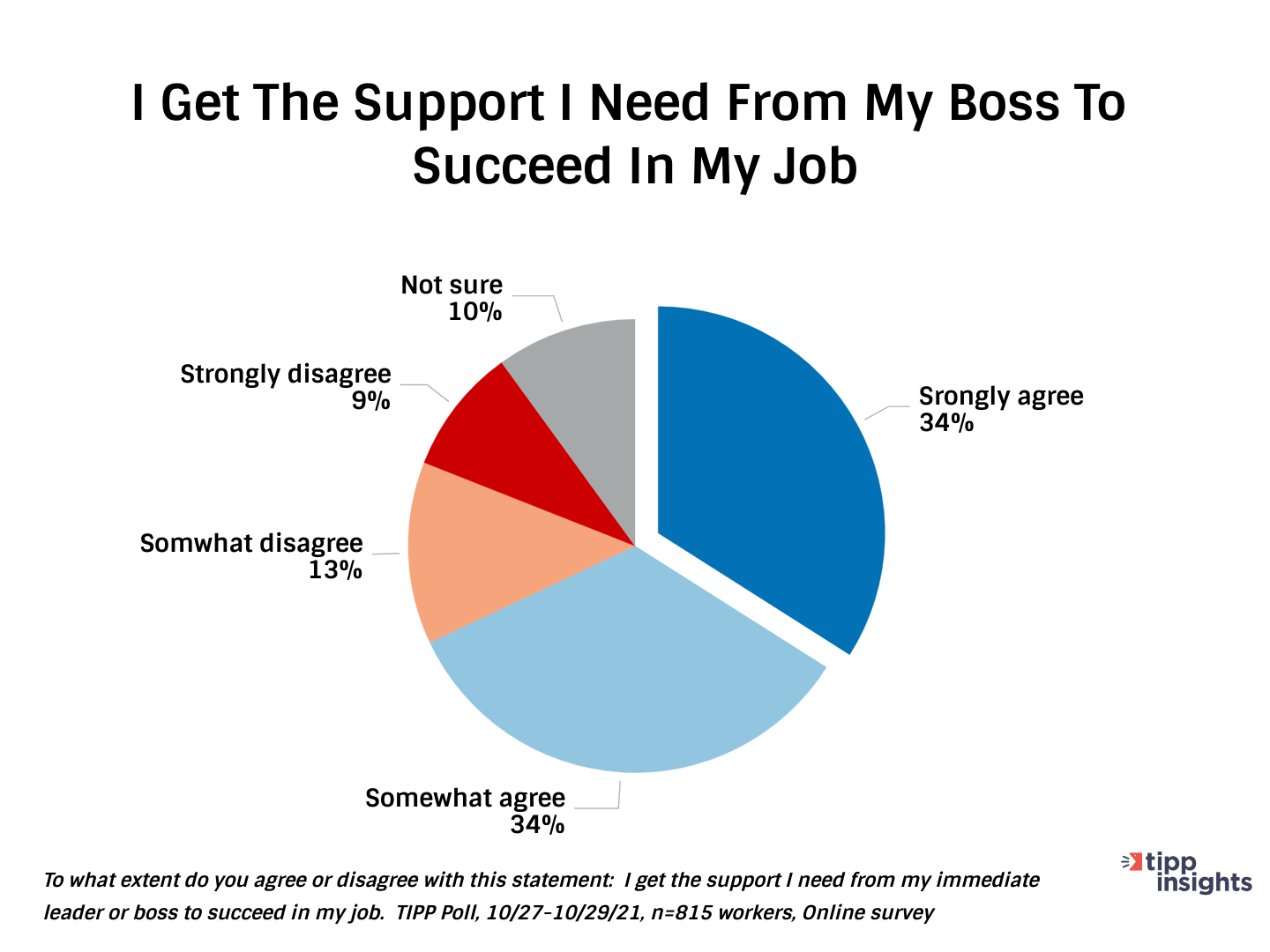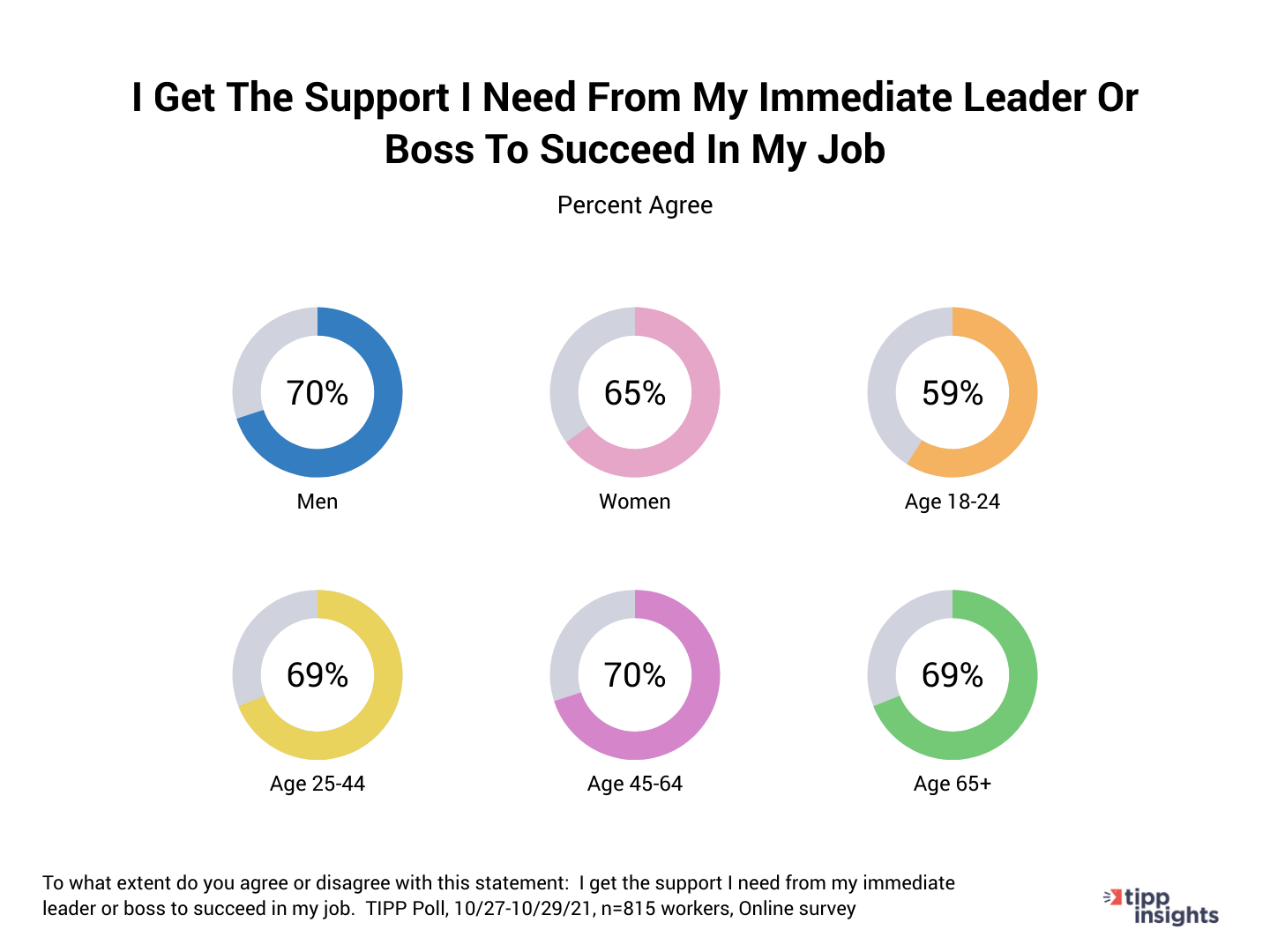As part of a recent national TIPP Poll, we asked workers across industry sectors if they feel they are being adequately supported in fulfilling their job expectations. Findings revealed that 65% of women and 70%of men said “yes,” they are receiving the kind of support needed to succeed. Geographically, it didn’t matter where these people work across our vast country. Those numbers may initially strike you as pretty good.
However, if you’re a manager or in a leadership role of some kind with ten or more people under you, it means that 3 of 10 members on your team may feel they aren’t getting the support they need. Now, that’s more than just a statistic. It’s an invitation that opens the door for you to tap into finding yet another way to have an even more productive team. But how do you find out who those 3 in 10 are in order to do something about it?

Here’s a hint: Interestingly, of the respondents who completed the TIPP Poll, those who feel least supported make between $30,000 and $50,000 a year, are younger, and happen to have little or no college education.

Tips for Approaching Team Members Who Feel Unsupported
If we were to speculate based on the findings, the following thoughts might come to mind as to what goes on in the workplace:
- Younger people in the workplace may not have a clear understanding of how best to utilize their boss. If you think about it, where did they get any training in this area?
- Perhaps some individuals find it difficult to speak up about what they need from their boss or don’t want to sound like they’re complaining.
- Then again, if an employee has a boss whom they think isn’t supportive, they may feel they’re in a bind and resist going up the management ladder.
Propose Private Meetings
Depending on your organizational structure, it might be a good idea to make the first move by setting up individual meetings with each of your people. During these meetings, engage in a meaningful exchange of what “support” means to them. Or, if you want team members to take the lead to initiate a conversation, you might try passing along this short article and letting them know you’re open to discussing it in private. Then, see who takes you up on the offer. To optimize the exchange, you could offer a few questions in advance to help them better prepare for the meeting. Whatever approach you choose, be sure to select a neutral time and plan on making this your only topic of discussion.
Get the Most Out of Your Meetings
To bring greater clarity around what it means for the leader to be supportive of their direct reports, you might try asking, “After assigning a task, how can I best support you in your efforts?” Asking this question can surely lead to an insightful exchange where both parties begin to establish clear expectations as to how best to work together.
Another relevant question to ask a direct report is, “When it comes to your advancement within the organization, as your leader, what can I do to support you in your efforts?” Asking this question can lead to conversations that could move in several different directions. For instance, since the pandemic, many workers (maybe including yourself) may have changed their views on life and thoughts about career advancement. If the employee wants to put promotion on hold, it’s valuable and timely to find out where and how you can best support them in making their job fulfilling while allowing them to grow professionally. If your direct report expresses an interest in advancing, then the door is wide open to discuss what that means, including thoughts about timeframes. These conversations also lend themselves to having candid discussions about what the direct report could be doing better or differently to be better positioned for advancement.
During these exchanges, a helpful tip to consider is taking notes. Then, when you reference what was previously talked about, your employee will recognize that you were really paying attention to what they said and that you genuinely care about bringing out the best in them.
Taking the time to have these meaningful conversations never grows old. People’s lives today are complex and ever-changing. What a great way to move into the New Year, knowing that you and your reports are in alignment and ready to hit the ground running in 2022!
Deborah Bright is the founder and president of Bright Enterprises, Inc., an executive coaching and training organization, and the author of six books, including The Truth Doesn’t Have to Hurt: How to Use Criticism to Strengthen Relationships, Improve Performance, and Promote Change (AMACOM, 2014).
ICYMI













